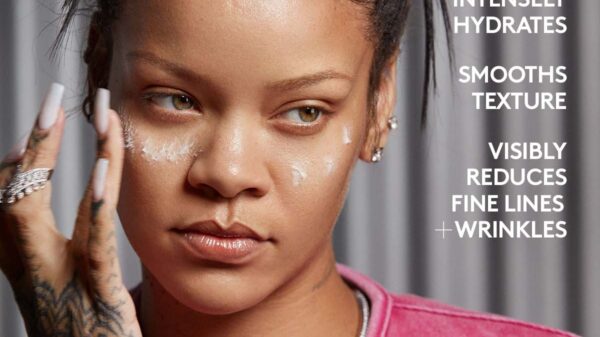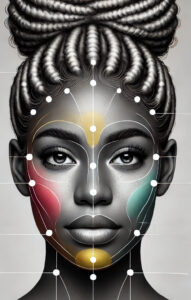Our face is more than just a reflection in the mirror—it’s a direct indicator of our internal health. Ancient practices like Chinese face mapping suggest that different areas of the face correspond to specific organs and bodily functions. While modern science offers partial support, experts agree that the skin, especially on the face, often provides early warning signs of underlying health conditions.
A study published in the Journal of Acupuncture and Meridian Studies highlights that face mapping can influence both the cardiovascular and nervous systems. If our skin isn’t healthy, it may indicate internal imbalances. Understanding what your face is telling you can help you make lifestyle changes that enhance both your skin and overall well-being.
Understanding Face Mapping
Face mapping divides the face into different zones, each linked to internal organs. Here’s what your face may be revealing about your health:
- Forehead: Linked to the digestive system. Blemishes or wrinkles here may indicate poor digestion, stress, or dehydration.
- Cheeks: Connected to the respiratory system. Redness or acne in this area may suggest allergies, pollution exposure, or lung congestion.
- Chin and Jawline: Related to the hormonal system. Breakouts in this area often reflect hormonal imbalances, especially around menstruation.
- Nose: Associated with the heart and blood circulation. Frequent redness or acne on the nose may indicate high blood pressure or poor circulation.
- Under-Eye Area: Affected by kidney function and hydration. Dark circles and puffiness can signal dehydration, lack of sleep, or stress.
For more details on how different areas of your face relate to your body’s health, visit The Minds Journal.
The Skin-Health Connection
The skin is the body’s largest organ and often the first to display signs of internal distress. Common health conditions that reflect on the face include:
- Jaundice: A yellowish tint in the skin and eyes, indicating liver dysfunction.
- Anemia: A pale complexion may point to low iron levels or vitamin B12 deficiency.
- Dehydration: Dry, flaky skin and dullness can signal inadequate water intake.
- Inflammation & Allergies: Redness and puffiness might suggest immune system issues or food intolerances.
If persistent skin issues arise, they may be more than just cosmetic concerns—they could be early warnings of deeper health issues.
Daily Practices for a Healthy Face and Body
To maintain glowing skin and overall health, adopt these daily habits:
1. Balanced Diet
A nutrient-rich diet is essential for both skin and body health. Key foods include:
- Antioxidants: Found in berries, leafy greens, and nuts, these help reduce oxidative stress.
- Omega-3 Fatty Acids: Found in fish, flaxseeds, and walnuts, they keep skin hydrated.
- Probiotics: Yogurt and fermented foods improve gut health, which is linked to clearer skin.
2. Adequate Sleep
Sleep is crucial for skin regeneration. During sleep, the body repairs damaged skin cells. Aim for 7-9 hours per night to avoid dark circles, dull complexion, and premature aging.
3. Hydration
Water plays a vital role in maintaining skin elasticity and flushing out toxins. Drink at least 8 glasses of water per day to keep your skin hydrated and glowing.
4. Sun Protection
UV rays are one of the leading causes of premature aging and skin damage. Always apply a broad-spectrum SPF 30+ sunscreen before stepping outside, even on cloudy days.
5. Stress Management
Chronic stress raises cortisol levels, leading to increased oil production and breakouts. Engage in stress-relief activities like meditation, yoga, deep breathing, or regular exercise to promote both mental and skin health.
Essential Skincare Routine
In addition to a healthy lifestyle, maintaining a proper skincare routine helps protect and nourish the skin:
- Cleansing: Wash your face twice a day with a gentle cleanser to remove dirt and oil.
- Moisturizing: Use a hydrating moisturizer suitable for your skin type.
- Exfoliation: Remove dead skin cells with an exfoliant 1-2 times per week.
- Serums & Treatments: Products containing vitamin C, retinol, or hyaluronic acid can target specific skin concerns.
Conclusion
Your face is a window to your body’s overall well-being. If you experience persistent skin issues, it may be worth examining your diet, hydration, sleep, and stress levels. By adopting a healthy lifestyle and a proper skincare regimen, you can enhance both your inner and outer health.
For more insights into face mapping and what your skin says about your body, read the full article on The Minds Journal.
Report Lela Christine
GODDESS COUTURE NEWS






































